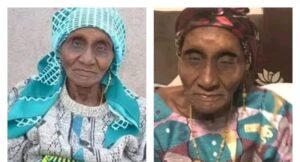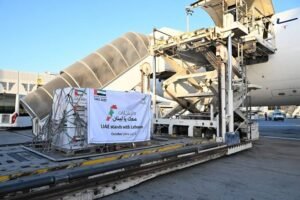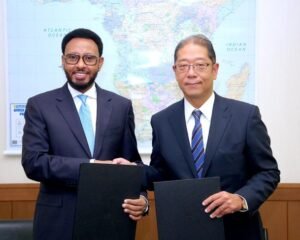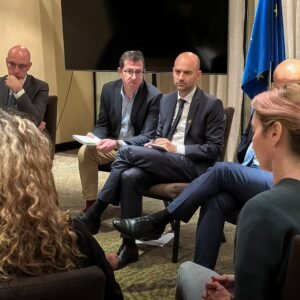COFP collaborates with FPI, organizes InterFaith Leaders’ Dialogue Forum

As part of its COVID-19 intervention program, Cardinal Onaiyekan Foundation for Peace in collaboration with Faith for Peace Initiative has organized Faith Leaders’ Dialogue Forum themed “Role of Faith and Inter-Faith Communities in Post-COVID-19 Economic Recovery”.
The Forum which was held on Wednesday July 1, 2020, was attended by the Executive Secretary of the Nigeria Inter-Religious Council, Rev. Fr. (Prof.) Cornelius Omonokhua, as the Keynote Speaker, Dr (Imam) Abdullahi Shuaib, CEO of Jaiz Charity and Development Foundation and Co-Chairman of NIREC in Lagos State, as the Lead Discussant.
Also part of the discussion were Sr. Agatha Chikelue, Executive Director of COFP Foundation, as the Chief Host and Tajudeen Alabede, a COFP Fellow and Director of FPI who moderated the discussion.
Christian and Islamic faiths were well represented by notable participants, including several senior citizens.
Participants at the Forum shared their thoughts on how the Faith and Inter-Faith Communities could further support the efforts of the government at all levels in lifting Nigerians, especially vulnerable citizens, out of the socio-economic impacts of the COVID-19 crisis.
In a statement released after the discussion, the Forum noted that Nigerians currently battle the realities of the lockdown and restriction of movement.
It affirmed that Covid-19 had affected the society, the religious communities, institutions, the agricultural sector, businesses as well as governance.
“This signals that it is not going to be business as usual in the post COVID-19 era, especially as many businesses have shutdown.
“Many organizations will downsize; aviation sector is experiencing a terrible hit; land transportation is not running smoothly while food production is hampered as the year 2020 planting season was affected with the unpleasant reality of gross food insecurity in 2021,” the statement reads.
“Among others, COVID-19 has thrown up critical existential challenges, namely: health, livelihood and security challenges,” it adds.
The Forum, however, commended the efforts of the government at all levels, especially President Muhammadu Buhari, Governors and members of the Presidential Task Force on COVID-19 for their efforts to curtail the spread of the pandemic.
It also applauded the concerted efforts of corporate organizations and public-spirited individuals towards the alleviation of the economic effects of the pandemic and in managing its spread.
Cardinal John Onaiyekan was commended for providing a platform to unite people of different faiths for peace through dialogue.
The Forum expressed concern about the unprecedented level of social and economic dislocations occasioned by COVID-19 as the world fights, in a way, two pandemics: health and economic pandemics.
Nigerians, as a people of faith were urged to recognize that God, through this crisis, is teaching us some lessons.
It stated that irrespective of faith, gender, race, age, social status and other demographic realities, all citizens should regard the pandemic as a challenge to humanity.
“We should all summon the goodness in each of us and come together to fight this common nemesis.
“It is essential we recognize the fact that Nigerians are a religious people. Most Nigerians belong to either the Christian or Islamic faith and trust their religious leaders more than any other category of leaders.
“To this end, religious leaders have a critical role to play in combating the social and economic challenges of COVID-19 pandemic, as with all national challenges,” the statement explains.
The Forum urged the Faith Communities to place emphasis on Joint Community Action by the leaders of both faiths at all levels.
It noted that the Faith Communities would work together, complement each other and share resources and experiences as we all face this common challenge to our humanity.
While recognising that COVID-19 pandemic has revealed the crisis of governance bedevilling the nation as it has shown the gross inadequacies in our governance system with massive deficits in health, education and other sectors, the Forum called on the government to seize this opportunity to review the governance system so as to make it more effective and efficient as well as to prepare the nation for any future challenge of the scale of COVID-19 crisis.
It reported that prior to the outbreak of Covid-19, more than 82million Nigerians were living on less than one dollar a day.
The Forum thereby called on the government to provide an enabling environment for the creation of jobs on a massive scale, offer interest-free loans to citizens, provide incentives to employers of labour and start-ups, ensure transparent management of the intervention schemes, reduce non-essential spending and invest more in essential services such as health, education, technology, security and other services that would support decent livelihood by Nigerian citizens.
To combat the hunger challenge occasioned by COVID-19, the Forum advised that conscious efforts should be made by governments and the Faith Communities to encourage Nigerian youth to take to agribusiness.
It also appealed to the private sector, as the driver of the economy, to develop services and products that could catalyse national productivity and socially-inclusive economicrecovery.
The Forum called on religious leaders to be more fervent in admonishing their followers to turn to their respective scriptures to find comfort at this difficult time.
It advised that they promote safe practices, build trust between the people and the government, embark on a sustained campaign on discipline at both the personal and social levels.
It further stated that they should preach to their followers to dissuade from politicising the pandemic and other common challenges, discourage waste, both individually and collectively.
The Forum encouraged the Faith Communities to collaborate on charitable initiatives while efforts should be made towards deploying Zakat, tithe and charitable donations to attend to the needs of vulnerable citizens.
It called on Faith Communities to embark on a strong advocacy on financial literacy among their members and facilitate the utilization of non- interest social and commercial finance instruments for short-term, medium- term and long-term interventions.
The religious leaders must intensify efforts to promote religious tolerance and harmony in order to create an atmosphere of peace and tranquillity which is necessary to attract foreign investments and allow for free movement of goods and services across the country
“The government should do more to protect the citizens as the recent lockdown has led to an upsurge in cases of rape and other social vices,” the statement concluded.
Other facilitators at the Forum were Rev. Kolade Fadahunsi, Director, Institute of Church and Society, Ibadan; Alhaji Kamor Disu, Executive Chairman, Muslim Public Affairs Centre, Lagos; Rev. Fr. Bulus Karis Lukas, Director of Inter- Religious Dialogue and Vicar General, Kaduna Archdiocese, Catholic Church; Hajia Halimah Jibril, National Amirah, Federation of Muslim Women Associations in Nigeria; Apostle Nyeneime Andy, National President, Youth Wing of the Christian Association of Nigeria; Mallam Sani Suleiman, National President, National Council of Muslim Youth Organisations; Mrs Mary Asibi Gonsum, President, Catholic Women Organisation of Nigeria, Jos Archdiocese; and Mrs Fatima Abubakar Madaki, Senior Project Coordinator, Search for Common Ground.








